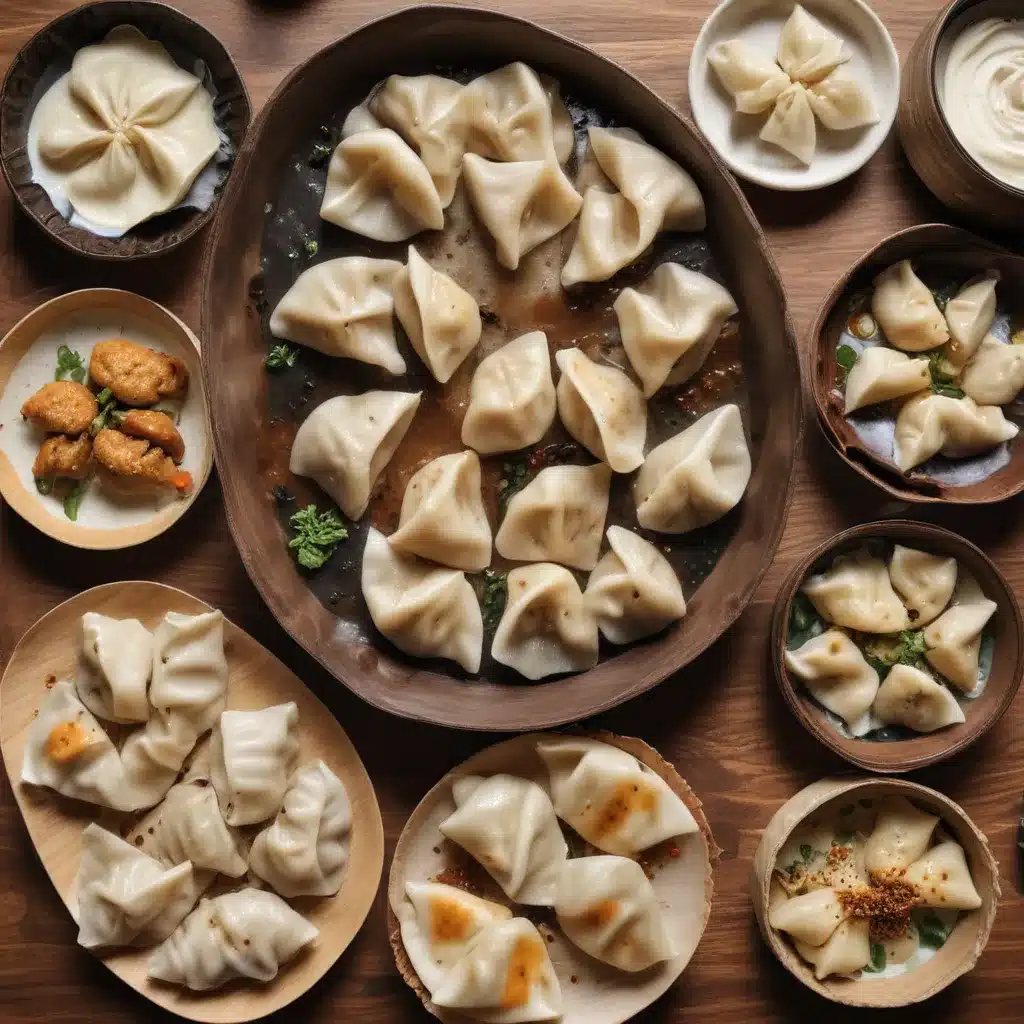
The Dumpling Delight: Exploring the Rich History and Evolving Flavors of Korean Cuisine in Boston
Ah, the humble dumpling – a culinary delight that has captured the hearts and taste buds of people around the world. But did you know that the humble Korean dumpling, or mandu, holds a special place in the rich tapestry of Korean cuisine? As a longtime resident of Boston and a self-proclaimed foodie, I’ve had the pleasure of exploring the diverse and ever-evolving world of Korean dumplings in this vibrant city.
Let me take you on a journey through the traditional and modern interpretations of this beloved dish, where the flavors of the Korean peninsula meet the dynamic culinary landscape of Boston.
Embracing Tradition: The Classic Mandu
When one thinks of Korean dumplings, the classic mandu is often the first thing that comes to mind. These delectable parcels of goodness have been a staple in Korean households for centuries, with each region and family boasting their own unique recipes and techniques.
One of the most renowned traditional mandu dishes that you’ll find in Boston is the kimchi mandu. This savory masterpiece features a filling of spicy, fermented kimchi, minced pork, and an array of aromatic vegetables, all wrapped in a perfectly thin and tender dough. The result is a burst of flavors that dance on your tongue, with the tangy and fiery kimchi complementing the succulent pork. Pair it with a side of soy sauce and a cold soju, and you’ve got yourself a true taste of Korea.
But the culinary journey doesn’t end there. Boston is also home to an array of other traditional mandu variations, each with its own unique charm. From the delicate japchae mandu, filled with sweet potato noodles and vegetables, to the hearty beef mandu, where tender beef is combined with aromatic spices, there’s a dumpling to suit every palate.
Embracing Modernity: Innovative Dumpling Creations
While the traditional mandu remains a beloved staple, the Korean culinary scene in Boston has also embraced a more modern and innovative approach to dumplings. Local chefs and restaurateurs have been pushing the boundaries, blending the rich heritage of Korean cuisine with contemporary flavors and presentation.
One such example is the kimchi mac and cheese mandu – a delightful fusion of Korean and American comfort foods. Imagine a perfectly crisp dumpling wrapper encasing a creamy, cheesy interior infused with the bold flavors of kimchi. It’s a dish that will have your taste buds doing a happy dance, seamlessly bridging the gap between the old and the new.
Another standout modern creation is the bulgogi mandu, where the classic Korean BBQ flavors of marinated beef and aromatic vegetables are reimagined in dumpling form. The result is a savory, umami-packed delight that will leave you craving more with every bite.
And the innovative spirit doesn’t stop there. Boston’s Korean food scene has also given birth to fusion-inspired dumplings, such as the kimchi and bacon mandu or the kimchi and shrimp mandu. These bold combinations showcase the versatility of the dumpling format, allowing chefs to explore the boundaries of traditional Korean flavors.
The Art of Dumpling-Making: A Culinary Masterclass
Behind the mouthwatering mandu lies a rich tradition of culinary artistry and craftsmanship. The art of dumpling-making is a skill that has been passed down through generations in Korea, and it’s a testament to the dedication and attention to detail that goes into each and every bite.
I had the opportunity to sit down with Sumi, the owner of Korean Garden Boston, a local restaurant that has been delighting Bostonians with its authentic and innovative Korean cuisine. She shared with me the intricate process of mandu preparation, from the meticulous folding of the dough to the precise seasoning of the fillings.
“The key to making the perfect mandu is in the balance of flavors and textures,” Sumi explained, her eyes sparkling with passion. “It’s not just about the filling – the wrapper must be thin enough to showcase the ingredients, yet sturdy enough to hold its shape.”
As she demonstrated the delicate art of mandu folding, I was mesmerized by the nimble movements of her fingers, each crease and pleat a testament to her years of experience. It’s a process that requires patience, precision, and a deep understanding of Korean culinary traditions.
Embracing the Future: The Evolution of Korean Dumplings in Boston
The world of Korean dumplings in Boston is not just a static repository of tradition – it’s a dynamic and ever-evolving landscape, constantly being shaped by the creativity and innovation of local chefs and food enthusiasts.
One exciting development that I’ve witnessed is the rise of fusion-inspired mandu creations, where Korean flavors and techniques are seamlessly blended with influences from around the globe. These bold experiments have resulted in some truly remarkable and unexpected flavor combinations, pushing the boundaries of what we traditionally think of as “Korean” dumplings.
Take, for instance, the bulgogi-inspired ravioli – a fusion masterpiece that combines the rich, savory flavors of Korean BBQ with the delicate wrapper of Italian ravioli. Or how about the kimchi and chorizo mandu, a spicy and bold fusion of Korean and Mexican cuisines? These innovative creations not only delight the palate but also serve as a testament to the boundless creativity of the Korean culinary scene in Boston.
But the evolution of Korean dumplings in Boston isn’t just about fusion – it’s also about honoring tradition while embracing modern culinary trends. Local chefs have been experimenting with new fillings, cooking methods, and presentation techniques, all while staying true to the core essence of the mandu.
One such example is the vegan mandu, where the traditional meat-based fillings are replaced with a delectable blend of plant-based ingredients. These dumplings have become a hit among health-conscious Bostonians, showcasing the versatility and adaptability of this beloved Korean dish.
Conclusion: A Dumpling Odyssey Awaits
As I reflect on my culinary adventures exploring the world of Korean dumplings in Boston, I’m struck by the depth and diversity of this beloved dish. From the timeless classics to the innovative and fusion-inspired creations, the mandu has proven to be a true ambassador of Korean cuisine, bringing the flavors of the Korean peninsula to the vibrant and diverse culinary landscape of Boston.
Whether you’re a die-hard traditionalist or a adventurous foodie, the world of Korean dumplings in Boston has something to offer. So, I invite you to join me on this delicious journey, to savor the flavors, uncover the stories, and immerse yourself in the rich tapestry of Korean culinary heritage – one mandu at a time.
And if you’re looking to embark on your own Korean dumpling odyssey, be sure to visit Korean Garden Boston – a local gem that has been dedicated to sharing the authentic and innovative flavors of Korea with the Boston community.
